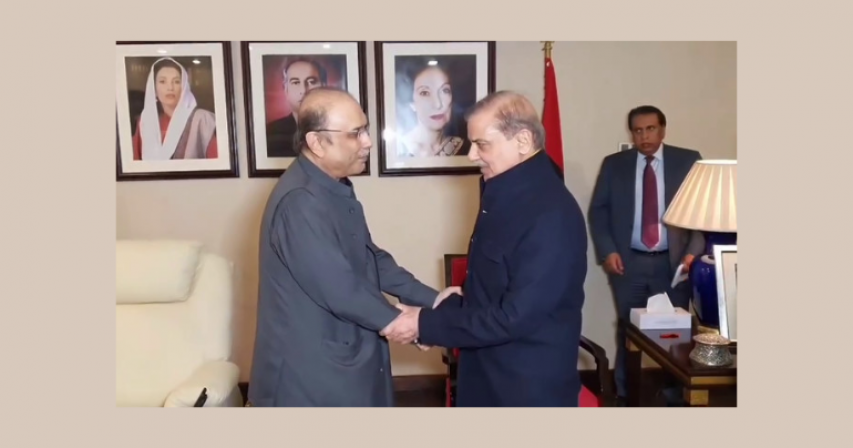Pakistan's Political Stalemate: Coalition Talks

As Pakistan grapples with a political stalemate following the February 8 national polls, the country's major political parties are locked in negotiations to form a coalition government. The Pakistan Muslim League-Nawaz (PML-N), led by former Prime Minister Nawaz Sharif, and the Pakistan Peoples Party (PPP), led by Bilawal Bhutto-Zardari, are engaged in tense discussions to reach a power-sharing agreement. Despite agreeing in principle to form a coalition, both parties are facing challenges in finalizing the details of the partnership.
The PML-N, which failed to secure a simple majority in the elections, is striving to forge alliances with other parties to strengthen its position. The PPP has expressed willingness to support the PML-N's candidate for the prime ministerial position but is reluctant to join the federal cabinet. Instead, the PPP aims to field its candidates for key constitutional positions, such as the speaker, chairman Senate, governors, and president.
Negotiations between the PML-N and the PPP have been ongoing, with both sides forming separate committees to negotiate the terms of the coalition. Despite several rounds of talks, a consensus has yet to be reached. However, representatives from both parties remain optimistic about reaching an agreement before the newly elected parliament convenes at the end of the month.
Senator Azam Nazir Tarar, representing the PML-N in the negotiations, expressed confidence in the progress of the talks and confirmed that another round of discussions would take place. While some issues, such as the PPP's inclusion in the federal cabinet, have been resolved, other details still need to be ironed out.
On the other hand, the PPP maintains its stance of not seeking ministries in the federal cabinet, emphasizing that this was not on the agenda for the negotiations. Qamar Zaman Kaira, a representative of the PPP, reiterated the party's commitment to its position and emphasized the need for further discussions to finalize the coalition agreement.
The PML-N, with Shehbaz Sharif as its nominee for the prime ministerial position, faces challenges in forming a coalition government due to its failure to secure a simple majority in the elections. Despite emerging as the single largest party in the National Assembly with 75 seats, the PML-N must seek alliances with other parties to consolidate its position.
The political landscape is further complicated by the presence of independent candidates backed by Imran Khan's Pakistan Tehreek-e-Insaf (PTI) party, which holds over 90 seats in the National Assembly. The PML-N's efforts to form a coalition government involve negotiations with not only the PPP but also other smaller parties like the Muttahida Qaumi Movement-Pakistan (MQM-P).
As negotiations continue, both the PML-N and the PPP are navigating the complexities of coalition-building in a fragmented political landscape. The outcome of these discussions will shape the future direction of Pakistan's governance and political stability.
By: Sahiba Suri





Comments